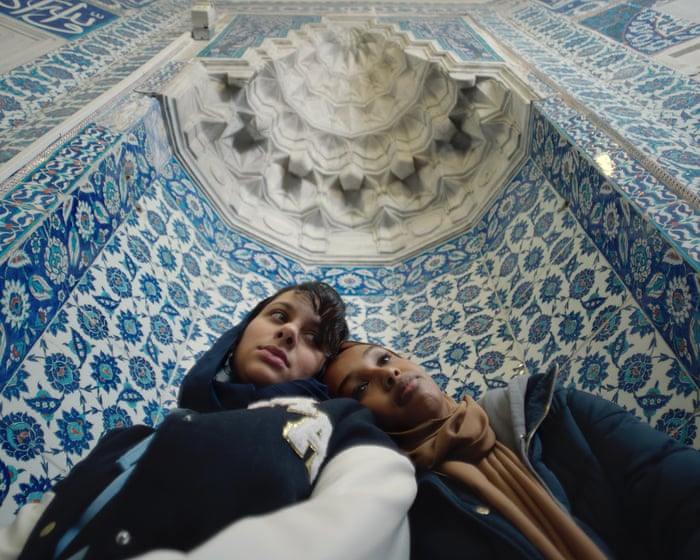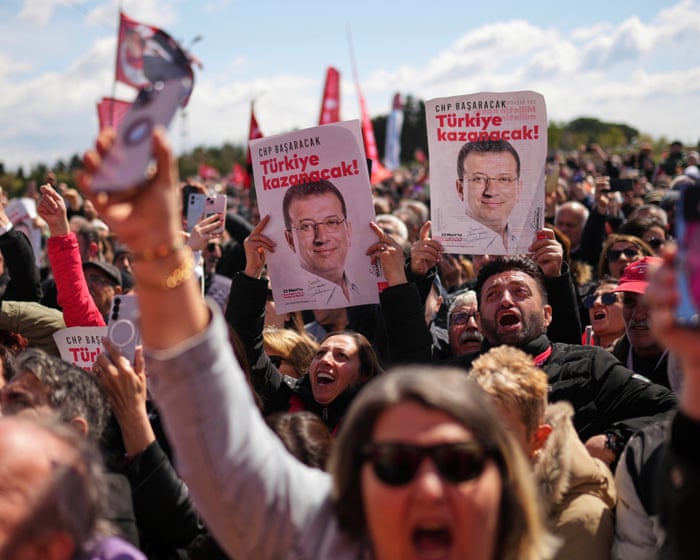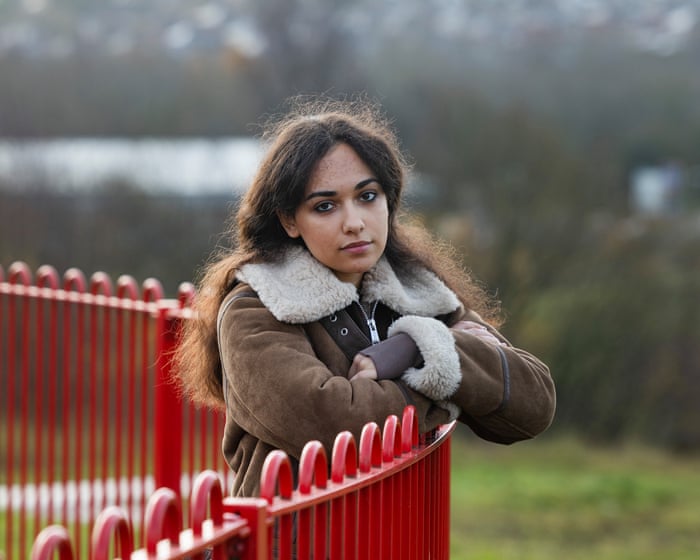In Nadia Fall’s debut feature film, “Brides,” two teenage girls run away from Britain to join Islamic State in Syria after being lured by social media posts promising freedom. The story may sound familiar because it was inspired by real events.
Fall, the artistic director of the Young Vic, explained: “I was working on a play with writer Suhayla El-Bushra at the National Theatre when we were approached about making a film. At the time, the media was full of stories about young people making that fateful journey to Syria, including Shamima Begum, the London teenager who secretly traveled to Syria in 2015 to become an IS bride. We noticed how these young women were vilified—portrayed as monsters—with no one really seeing things from their perspective. We felt it was important to tell their side of the story.”
The film, which premiered at Sundance and is being released in cinemas this month, avoids easy judgment of its two protagonists, played by Ebada Hassan and Safiyya Ingar. Instead, it follows their dangerous journey through Turkey toward the Syrian border. Along the way, they lose their passports and money, stay with a bus station clerk’s family, survive a police chase, and hitchhike out of the city.
Fall drew on her past experience working with young people, including in pupil referral units and mental health settings. “The story is fictionalized, but we based it on real events,” she said. “We filmed at the actual bus station in Turkey where Shamima Begum and her friends waited. Even the social media posts about kittens and ‘halal Haribo’ are real.”
She cited “Thelma and Louise” as a major inspiration, calling it “the greatest road movie of all time,” along with other films about young women like “Never Rarely Sometimes Always.” Fall has always been fascinated by the teenage mind. “As teenagers, we’re wired to take risks and make impulsive decisions. When people ask why someone would make this journey, there’s no single answer. Our research showed there were many different reasons.”
“Brides” doesn’t focus on analyzing terrorism. The girls are never shown in Syria, and the word ISIS is never used. Fall intentionally centered the story on the intensity of adolescent friendships. “It’s a love letter to teenage girls. There are plenty of documentaries about Syria—we’ve seen the news and know what it was like on the other side of the border. For us, it was about the journey. What if they could experience the freedom they found along the way and choose a different path?”
The film also includes scenes of war-torn Syria, far-right protests in Britain, and Nigel Farage, highlighting how these events feel cyclical. “It’s crazy how these images could have been from yesterday,” Fall remarked.Fall remarked, “Farage, who we thought had faded from the spotlight, is now very much at the center of attention. The ‘unite the kingdom’ march was packed with people. Individuals are being radicalized, believing the narcissists in power who claim, ‘that person is taking things away from you.’ It’s divisive, cynical, and horrific.”
If Brides has a message, it’s a call for empathy. “We go to the gym and eat well for our health—similarly, we need to regularly practice empathy. Doing it alongside strangers at a cinema or theater makes it even better.”
Fall grew up in Southwark and the Middle East as the daughter of South Asian parents. After training as a director, she became an associate at the National Theatre, then led Stratford East (formerly Theatre Royal Stratford East) before taking over at the Young Vic. This month marks her first full season in charge, and she is determined to start boldly.
The season opens with Fall directing Joe Orton’s cult queer classic, Entertaining Mr Sloane. Also featured are Rajiv Joseph’s Pulitzer and Tony-nominated Bengal Tiger at the Baghdad Zoo, directed by Omar Elerian, and Arthur Miller’s rarely performed Broken Glass, revived by Jordan Fein. The latter, written in response to the rise of fascism in Europe, focuses on a Jewish woman in 1930s Brooklyn who becomes paralyzed after reading about pogroms in Germany. “It asks: when terrible things happen in the world, what do you do? Ignore it or face it directly?” Fall said. Other plays explore austerity in Britain and systemic injustices within British institutions.
The director described the new season as having “something mischievous,” which she feels is important at a time when “everything has become a bit homogeneous.” She noted that funding cuts have made theaters increasingly risk-averse, “but that’s where the exciting work happens.”
She added, “It’s tough across the sector. Our buildings are falling apart, and we need to pay staff. I wish our government seemed more interested. Why don’t they extend the tax relief scheme? Why don’t they forgive the Covid loans?”
Fall also expressed concern that low pay and rising ticket costs could reduce diversity in the industry. “Would I celebrate a world where my theater was full, but each ticket cost £300, like on Broadway? That’s where the numbers could lead us: theater becoming a pastime for the elite.”
Frequently Asked Questions
Of course Here is a list of FAQs about Nadia Falls comments on her debut film Brides inspired by the quote We saw how those young women were so harshly judged
General Beginner Questions
Q What is the film Brides about
A Its a drama about three young BritishPakistani women from Bradford who travel to Pakistan for a family wedding and find their lives and friendships tested
Q Who is Nadia Fall
A Nadia Fall is a British theatre director and filmmaker Brides is her debut feature film
Q What did Nadia Fall mean by young women were so harshly judged
A She was referring to the intense public and media scrutiny criticism and moral judgment that the three main characters face for their choices and behavior both within their community and from wider society
Q Is Brides based on a true story
A No its a fictional narrative However it is inspired by realworld experiences and social pressures that many young women particularly from South Asian communities in the UK can relate to
Thematic Deeper Questions
Q What kind of judgment do the women face in the film
A They face judgment for things like their romantic relationships their desire for independence their clothing and not conforming to traditional expectations of how good women from their background should act
Q What was Nadia Falls main goal in making this film
A Her goal was to create a nuanced portrayal of these young women to foster empathy and understanding for their struggles and to challenge the simplistic and often harsh judgments placed upon them
Q How does the film explore the clash between cultures
A It shows the characters navigating their British identities and their Pakistani heritage often feeling caught between the expectations of their familycommunity and their own personal desires
Q Does the film only focus on negative judgment from their own community
A No While that is a significant part the film also touches on how they can be stereotyped or misunderstood by the wider British society creating a double judgment from multiple angles
Practical ViewerFocused Questions
Q Where can I watch Brides



